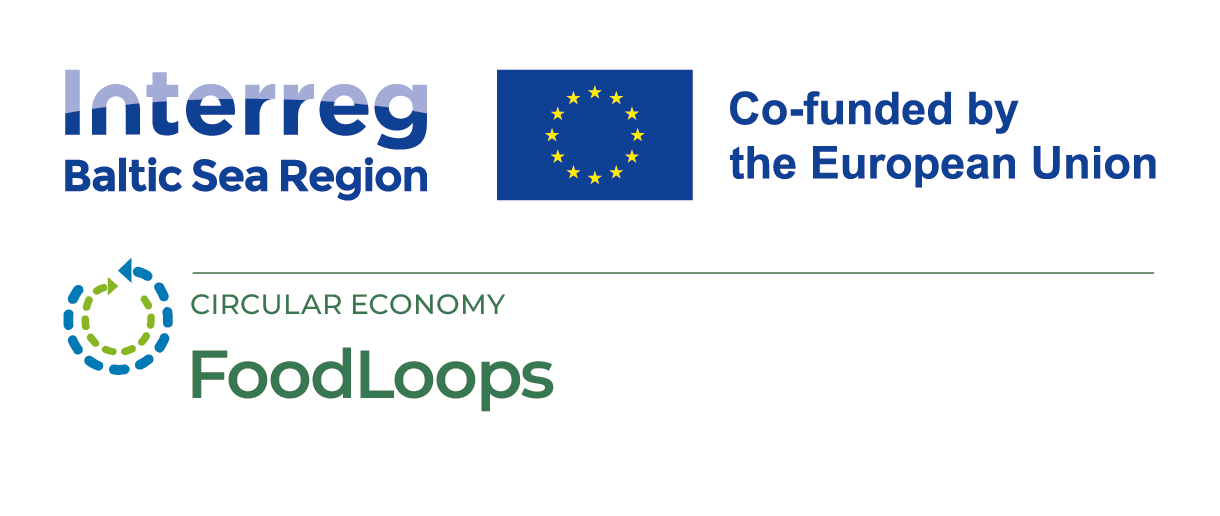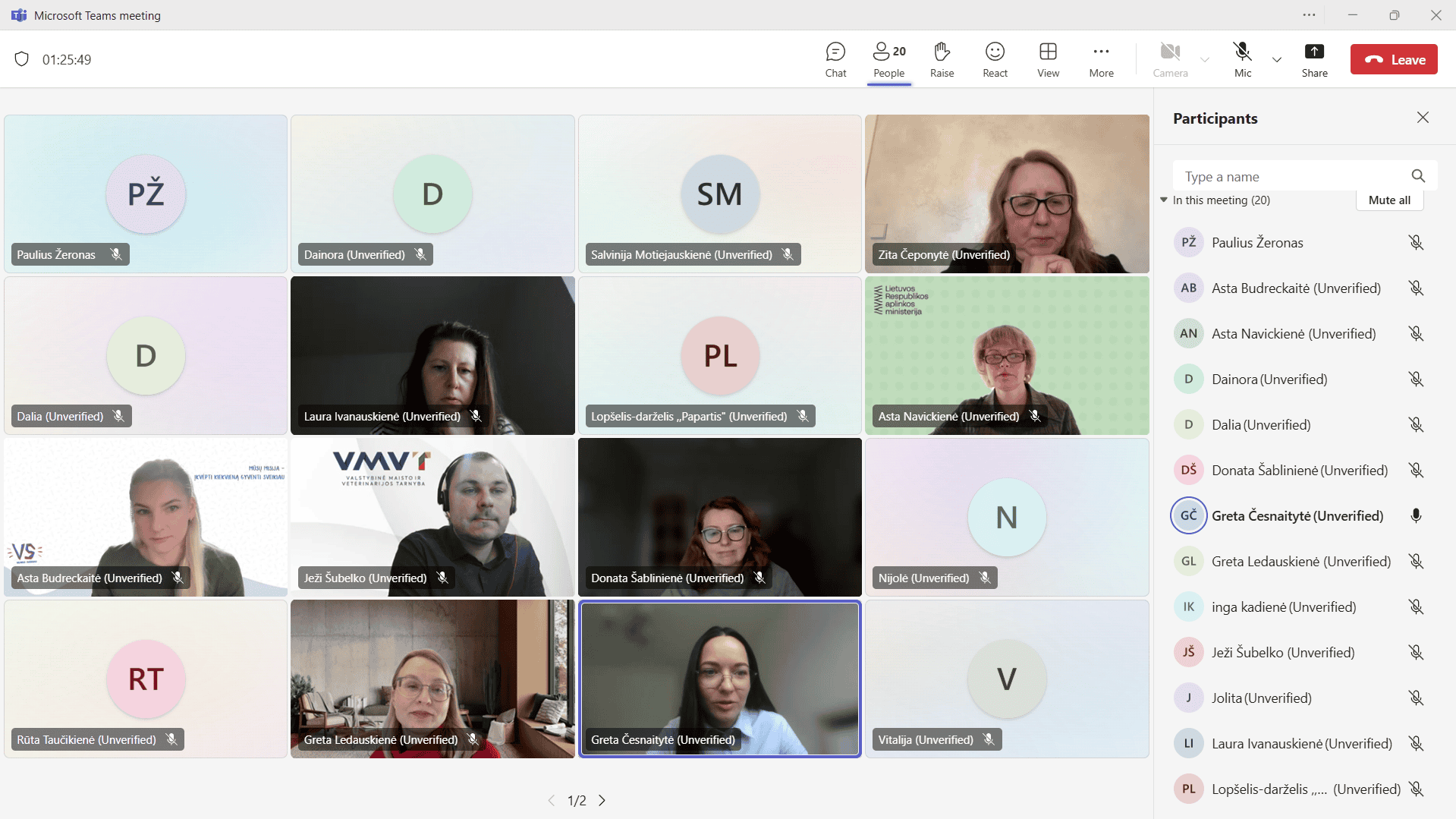
Workshop on Food Sorting and Education in Schools
22 July 2025
The FoodLoops project is aimed at empowering better separation of food waste at its source and valorising unavoidable waste into products of value, such as compost. As part of the FoodLoops project, the following activity was conducted:
Date: 2025-02-28
Format: Online event
AGENDA
- Opening of the event
- Presentation of the issue:
– Uncertainties in sorting food waste in schools
– Aspects of infrastructure, hygiene requirements, and waste management processes
– Lack of practical application
– Composting opportunities in educational institutions
- Presentation of institutional positions and insights:
– State Food and Veterinary Service
– Ministry of the Environment
– Vilnius City Municipality
– Panevėžys City Municipality
- Discussion
On February 28, 2025, the Lithuanian Consumer Institute organized an online workshop aimed at promoting food waste prevention in schools. The event addressed the challenges faced by schools in organizing food waste sorting more effectively and explored ways to strengthen students’ education in this area using practical examples.
Participants
The event brought together representatives from the State Food and Veterinary Service, the Ministry of the Environment, Vilnius and Panevėžys City Municipalities, as well as representatives from school and kindergarten administrations and teachers. The discussion aimed to identify solutions to better align practical waste sorting opportunities with educational content and to encourage cooperation between institutions and the education community.
The Issue
During the implementation of educational activities, various uncertainties often arise regarding food waste sorting and its integration into student education. These challenges stem from inconsistent sorting conditions—many educational institutions lack adequate infrastructure, there is insufficient information about hygiene requirements, and the processes of waste management are not always clear. As a result, students are unable to apply their acquired knowledge in practice, making educational efforts less effective. The workshop also addressed composting as a realistic and practical solution for educational settings.
Institutional Positions and Insights
- State Food and Veterinary Service:
Emphasized that food waste sorting must be conducted responsibly, considering the risk of cross-contamination. Special and separate requirements apply to products of animal origin. Composting must also be approached with caution—compost must be safe and suitable for use in fertilization without posing health risks. The Service noted the variety of composting equipment currently available, including microbiological composters, but raised concerns about the safety of children handling compost. A proposal was made to develop composting guidelines, which could be prepared by the Ministry of the Environment in cooperation with the State Food and Veterinary Service.
- Ministry of the Environment:
Stressed that greater attention should be paid to food waste sorting. Sorting should be implemented across all institutions, yet currently it is unclear where students’ food waste from home is disposed of. The Ministry emphasized the importance of shaping responsible behavior among children and ensuring that waste is sorted rather than discarded randomly. Successful food sorting practices in office settings were cited as an example that could be applied in educational institutions.
- Vilnius City Municipality:
Announced plans for a pilot project in which food waste brought from home would be sorted and accompanied by educational activities on sorting and its benefits. The municipality also supports sustainable food initiatives through EDU Vilnius, including funding for microbiological composters, which are already widely used.
- Panevėžys City Municipality:
Raised questions about composting kitchen waste—there is currently no clarity on whether such waste is suitable for composting. The lack of documentation specifying the rules and requirements for composting was also noted.
Conclusion
During the event, it was agreed that composting guidelines must be developed to clearly define composting conditions and safety requirements in educational institutions. It was proposed that the Ministry of the Environment, in cooperation with the State Food and Veterinary Service, take responsibility for preparing this document.






